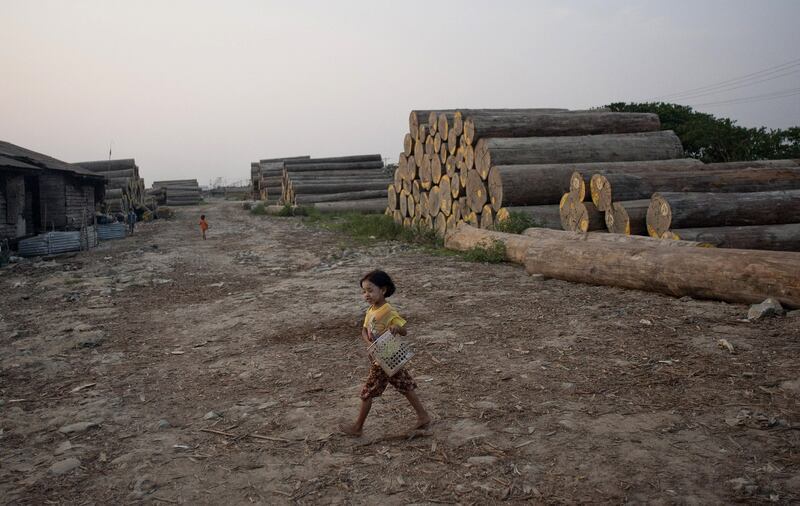Logging companies and criminal gangs are destroying forests in East Asia at an unprecedented rate.
Myanmar is grabbing world headlines for its citizens' struggle against a military regime that overthrew Aung San Suu Kyi’s elected National League for Democracy on Feb. 1.
Less well known about the country of 54 million people is the ongoing illegal logging that has been destroying the forests of Myanmar, which along with Indonesia, Malaysia, Vietnam, Cambodia and Thailand are deforestation hotspots in Southeast Asia.
The National Geographic magazine reports that half of the world's remaining wild teak, one of the world's most valuable hardwoods, grows in Myanmar.
National Geographic fellow Paul Salopek witnessed teak being transported on barges piled high with huge logs and described the scene as "a forest on the move."
He described teak as “easily worked lumber.” It‘s rich in weather and pest-resistant oils and is highly rated for use in patio furniture and countertops.
Teak’s high silica content creates a smooth surface when it’s polished and also works well in the construction of yachts.
"Forest clearance in Southeast Asia is accelerating, leading to unprecedented increases in carbon emissions," said a study by University of Leeds researchers published in July.
"The findings show that forests are being cut down at increasingly higher altitudes and on steeper slopes in order to make way for agricultural intensification," it said.

Criminal gangs
Meanwhile, the London-based Environmental Investigation Agency (EIA) reports that with some of the highest deforestation rates in the world, East Asia could by 2030 lose some 70 million hectares of natural forest, the equivalent of 25 percent of the projected global total.
Forests provide many benefits. They absorb toxic gases. They help to prevent soil erosion. And they provide much-needed shelter for animals and birds.
In previous years some trees were removed simply to provide more space for agricultural expansion. But in today’s Myanmar, profit-making has drawn the attention of illegal loggers.
Criminal gangs have a long history of involvement in illegal logging, in Myanmar and elsewhere in East Asia.
In recent years, they’ve become better organized and highly efficient in harvesting and exporting illegal timber.
As the EIA describes it, such gangs “now have the capacity to move into a forested area and rapidly extract all available hardwoods.”
Logging companies as well as the gangs form strong links with local government and military officials and are believed to have no qualms about paying bribes to them.
In Myanmar, you can find dedicated forest rangers, but their numbers have been limited at least until recently.
Endangered national park
In 2014 the Myanmar government finally took strong action. According to Paul Salopek, the government imposed a ban on wild teak exports. Police arrested 153 mostly Chinese illegal loggers, who were sentenced to 20 years in prison.
Since then, Myanmar has loosened the ban to allow sales of stockpiled timber or plantation trees.
Salopek spoke with an environmentalist named Aung who works in the Mawlaik region in northwestern Myanmar.
Aung said that the bosses in charge of cutting down teak trees pay their workers half of their wages in cash and the rest in drugs. In this way, he said, the workers become addicted to the drugs and dependent on their bosses.
Farm labor pays roughly three to five dollars a day in Myanmar, whereas cutting down teak trees pays a minimum of six dollars.
A group called Global Conservation (GC) reported that as of 2018 Myanmar’s largest national park, home for elephants and other wildlife species, had only 12 forest rangers patrolling it.
Protecting more than 150,000 hectares of deep jungle and rain forest with only 12 rangers, GC said, was “challenging.”
The Aleungdun Kathapa National Park lost 80 percent of its intact forests to illegal logging, but having a 2,000-foot cliff surrounding 60 percent of the park has helped it to survive decades of heavy logging.
According to the World Bank, storms, floods, and waterlogging have been identified as key sources of poverty, particularly in rural areas.
Dan Southerland is RFA's founding Executive Editor.
